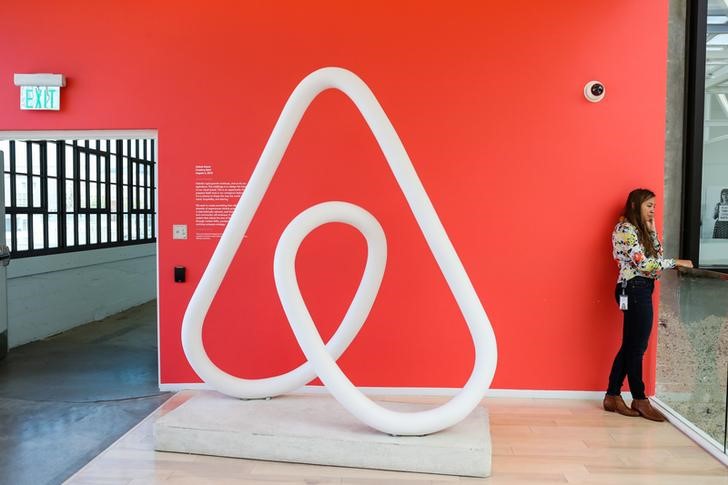Investing.com’s stocks of the week
Airbnb (NASDAQ:ABNB) issued an upbeat revenue forecast for Q2, driving its shares up nearly 5% in premarket trading.
The company reported Q1 revenue of $1.51 billion, up 70% YoY and above the consensus estimates of $1.45 billion. Loss per share stood at 3c in the period, compared to the loss per share of $1.95 in the year-ago period.
ABNB reported a gross booking value of $17.2 billion, topping the consensus estimates of $15.91 billion. Gross booking value per nights and experiences booked came in at $168.07, while analysts were looking for $163.92. Nights and experiences booked 102.1 million, above the analyst estimates of 98.1 million.
For the second quarter, Airbnb expects revenue in the range of $2.03 billion to $2.13 billion, topping the analyst expectations of $1.97 billion. The company said it expects the Nights and Experiences Booked growth rate to approximate the growth rate in Q1. ABNB also anticipates delivering modest adjusted EBITDA margin growth for FY2022, compared to FY2021.
Raymond James analyst Aaron Kessler reiterated a Market Perform rating amid high valuation but remains positive on the fundamentals given:
“1) a large nights and experiences TAM that is increasingly shifting to alternative accommodations; 2) a leadership position and strong brand driving significant organic traffic; 3) ~20% long-term revenue growth driven by a shift to alternative accommodations, global expansion, and continued innovation; 4) ~30% plus long-term EBITDA margins. While we have a positive fundamental outlook, we believe shares are fairly valued at current levels,” Kessler said in a client note.
Stifel analyst Scott Devitt also lowered the price target to $180.00 per share from the prior $205.00.
“We are modestly raising our estimates reflecting current bookings momentum and expectations for margin expansion, though we remain cautious on share performance from here given (1) uncertain ADR trends in 2H/2023, which will likely limit upside to GBV growth and (2) recent multiple compression at the group level that may signal investor enthusiasm related to the recovery in travel is beginning to wane,” Devitt said in a note.
By Senad Karaahmetovic
